What marketers need to know about Google’s Gemini

What marketers need to know about Google’s Gemini. Last month, Google introduced its new AI model, Gemini 1.0. It’s being described as the ‘Chat GPT-4 killer’, and it’s been given all the hype you’d expect from a major AI announcement.
Let’s take a look at Google’s announcement, and what marketers need to know about Gemini.
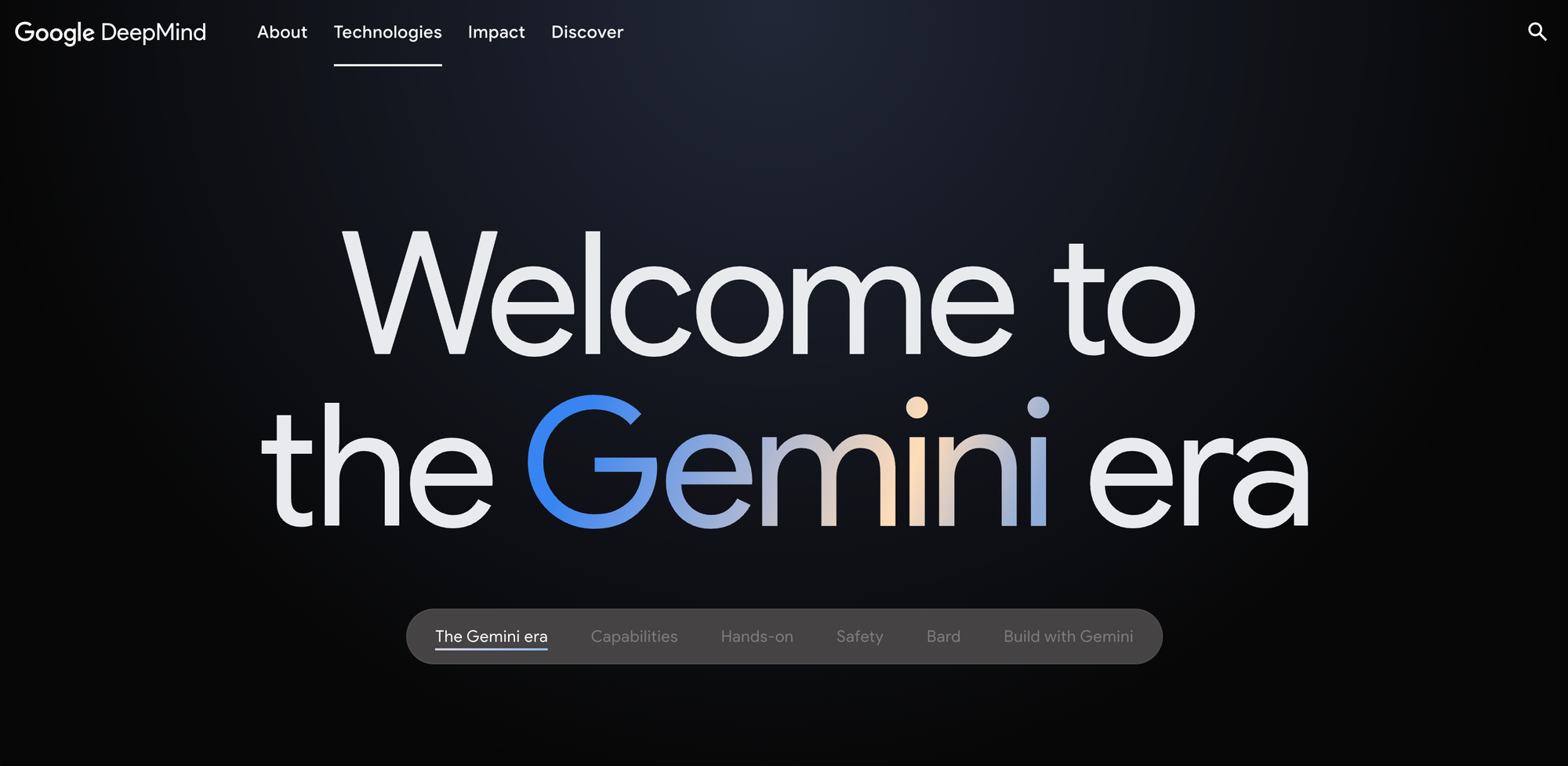
Why's it important? Gemini will be powering Google Bard, and its upcoming launch of Search Generative Experience, known as ‘SGE’.
SGE will change the search landscape and marketers need to start building an understanding of which SEO strategies will work in the near future.
I’ve curated takeaways from articles on Google’s Gemini, how it powers Bard, accelerates Search Generative Experience, and how you can evolve your SEO strategy.
Read on for takeaways from:
- What is Google’s Gemini 1.0?
- Gemini Pro powers Bard and accelerates SGE
- How SEO will evolve for SGE.
What is Google’s Gemini 1.0?
“I believe the transition we are seeing right now with AI will be the most profound in our lifetimes, far bigger than the shift to mobile or to the web before it.” (Sundar Pichai, Google CEO).
Google’s CEO believes AI will be transformational and significantly improve our daily lives. The company launched Gemini 1.0 in December 2023. Gemini is built for multimodality, meaning that it works across text, images, audio and code.
In Google's announcement, it compared Gemini's new AI model capabilities to humans, demonstrating that it surpassed MMLU (Massive Multitask Language Understanding) of human experts, as well as outperforming GPT-4 on almost every capability.
There are three versions of Google Gemini upon launch:
- Gemini Ultra is the most capable and largest model for highly-complex tasks
- Gemini Pro is their best model for scaling across a wide range of tasks
- Gemini Nano is their most efficient model for on-device tasks.
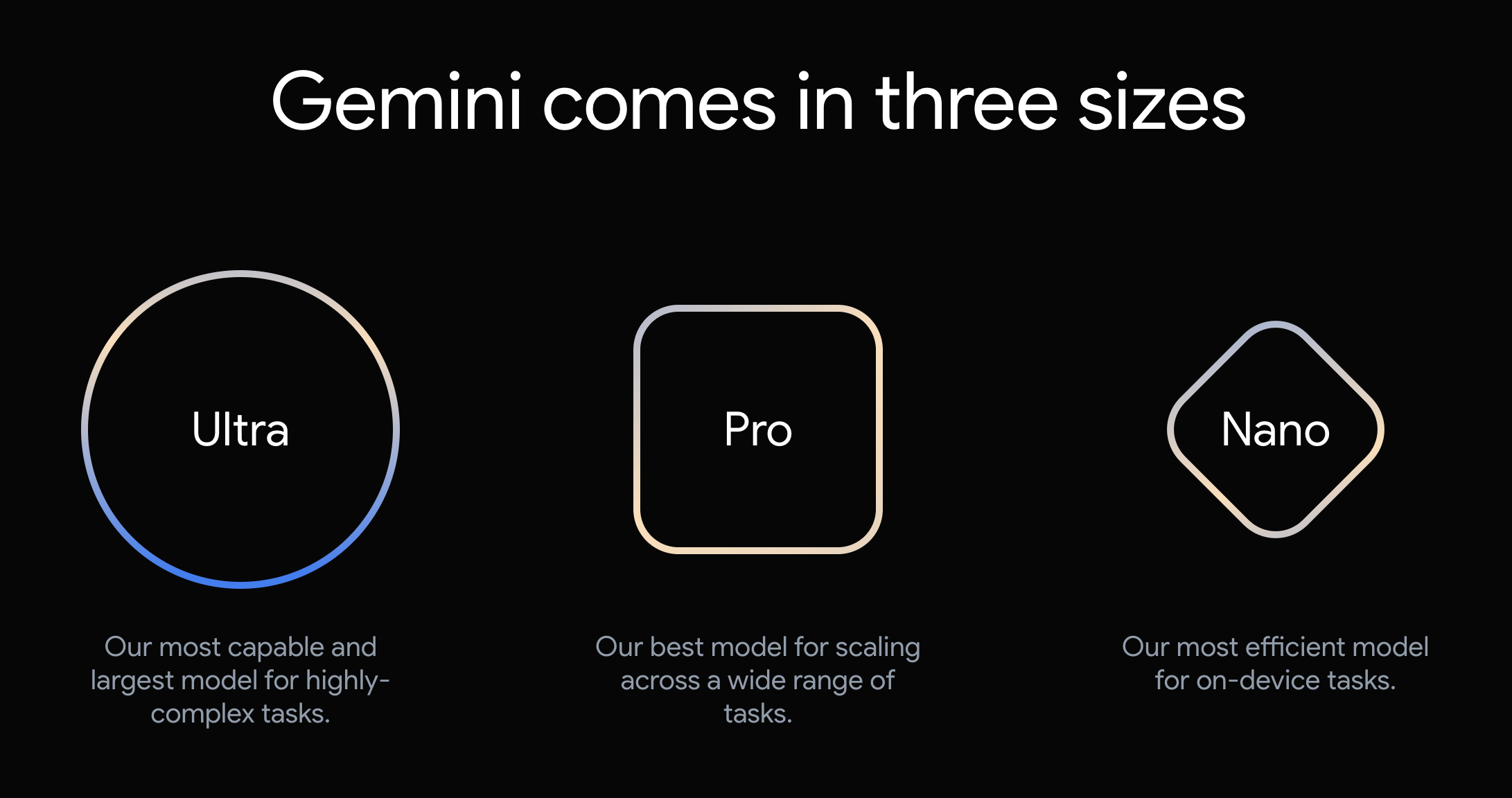
Gemini Pro powers Bard and accelerates SGE
Gemini Pro is being used to power Google Bard and accelerate Search Generative Experience (SGE).
Google states that this represents the biggest upgrade to Bard since it launched because of Gemini Pro’s multimodal capabilities.
According to CEO & Co-Founder of Google DeepMind, Demis Hassabis, the upgrade, “means it (Bard) can generalise, understand, operate across and combine different types of information text, code, audio, image and video.”
Gemini Pro is also being used in Search to accelerate Search Generative Experience for users by reducing latency by 40%, according to Sissie Hsiao (VP & GM, Google Assistant & Bard).
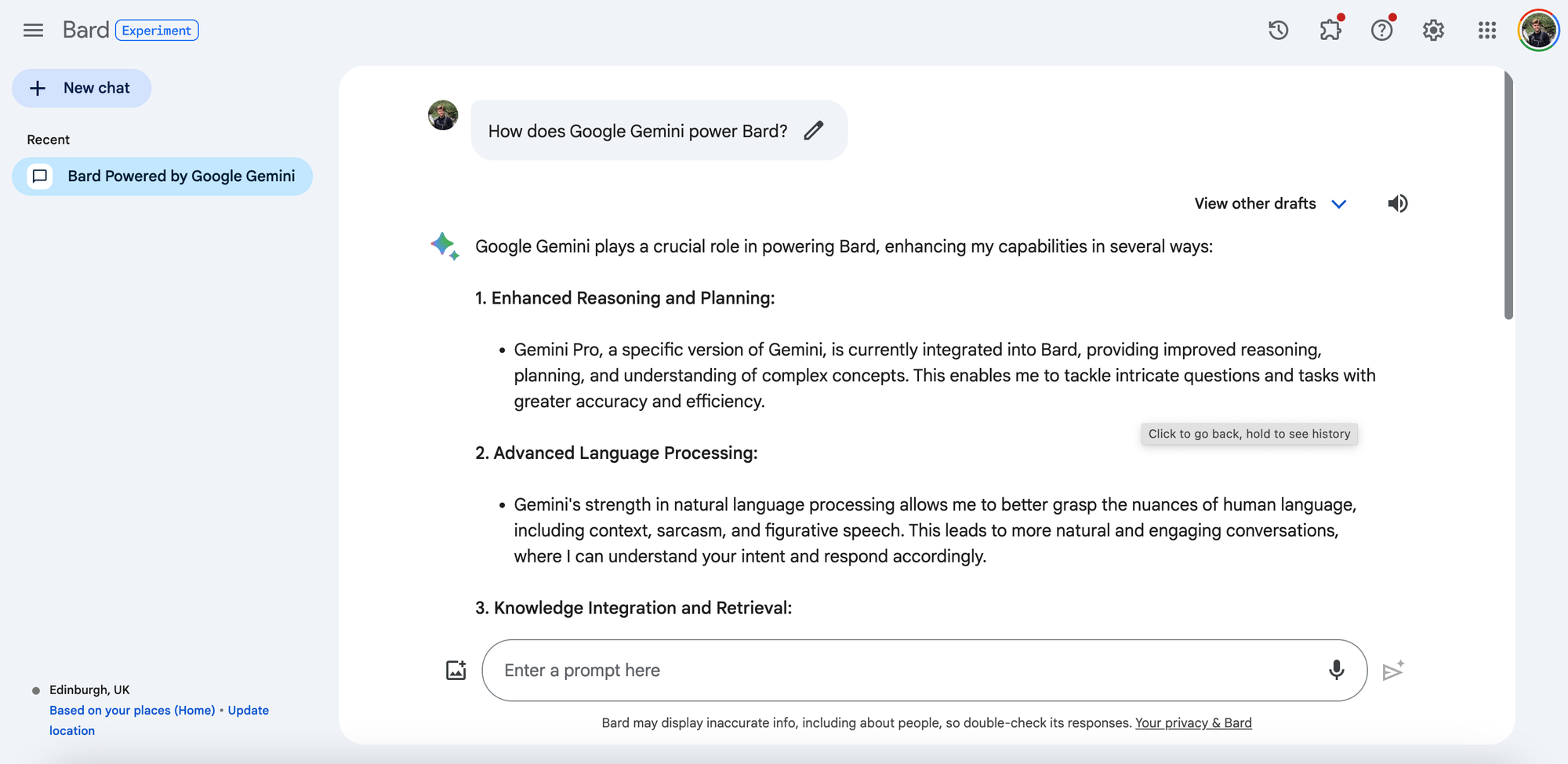
I believe the introduction of Gemini Pro is a major milestone in the path towards Google’s launch of Search Generative Experience (SGE) for a number of reasons:
- Gemini Pro is accelerating the speed of SGE’s AI-powered answers. This was a major blocker for Google, as users complained SGE was too slow. Gemini is changing that
- Google wants users to search seamlessly with images, video and code to get AI-powered answers. Gemini enables that
- Google did not want to launch a more inferior AI-search experience than Bing’s Chat search (powered by GPT-4). Gemini now surpasses GPT-4
- Gemini Pro can provide a more personalised experience that better understands user intent by understanding their goals, reasoning with relevant information, and generating a bespoke interface based on their needs
- Gemini Pro improves the accuracy of SGE’s results, reducing the risk of hallucinations (although they still occur, see below for multimodal example on Bard).
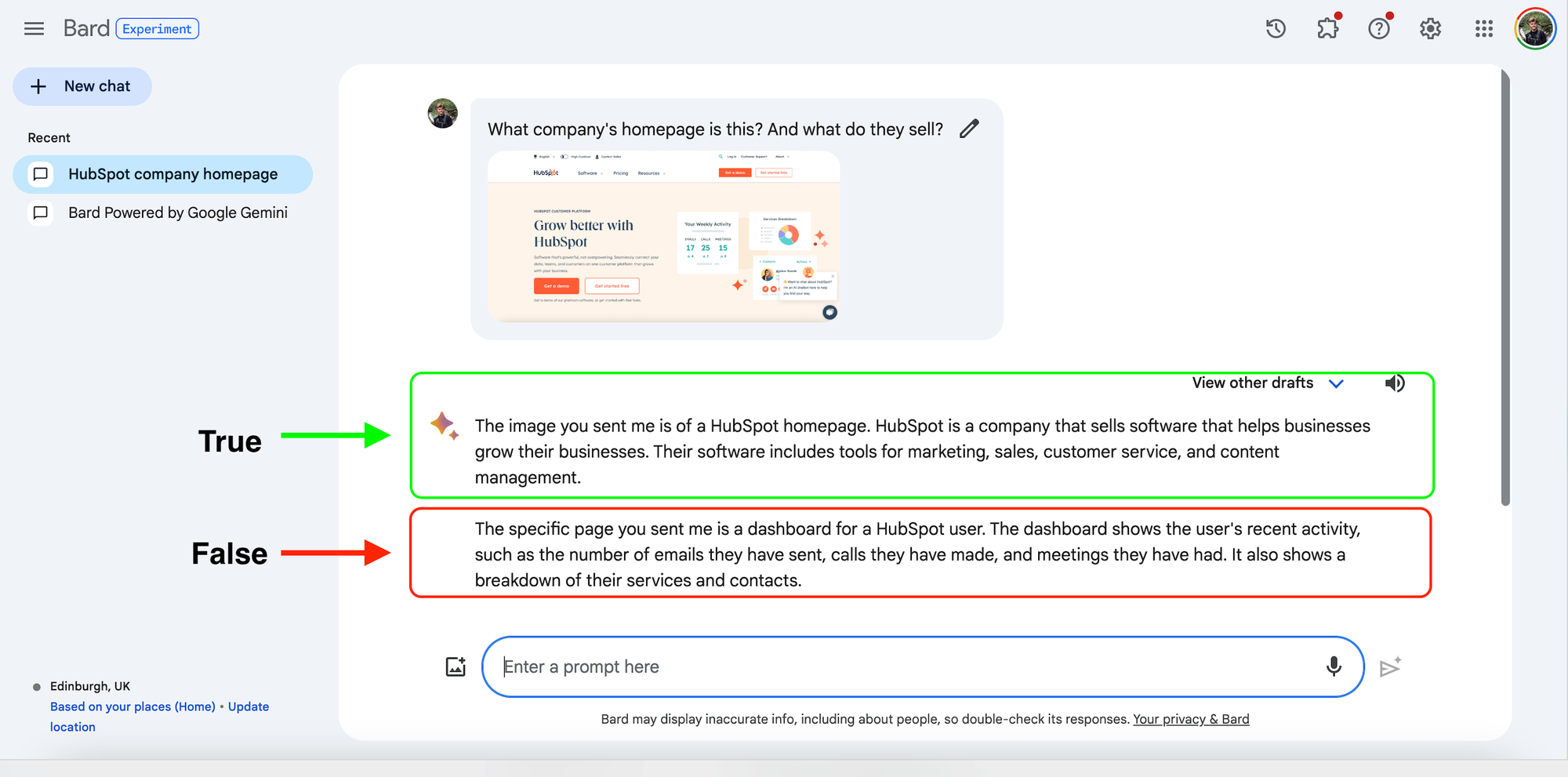
How SEO will evolve for SGE
As Google gets closer to launching Search Generative Experience, powered by Gemini Pro, marketers are going to need to evolve their SEO strategies.
What should you do? 💡 I’ve curated some of the best articles for you to read about how SEO strategies could evolve for SGE:
Impact of Google SGE (Search Generative Experience) on SEO (Fernando Macia, Human Level). Key takeaways:
- Click through rates (CTRs) will decrease for organic results, but increase for the Google SGE panel
- The impact on CTRs will vary depending on the type of search. For example, CTRs are likely to decrease more for informational searches than for transactional searches.
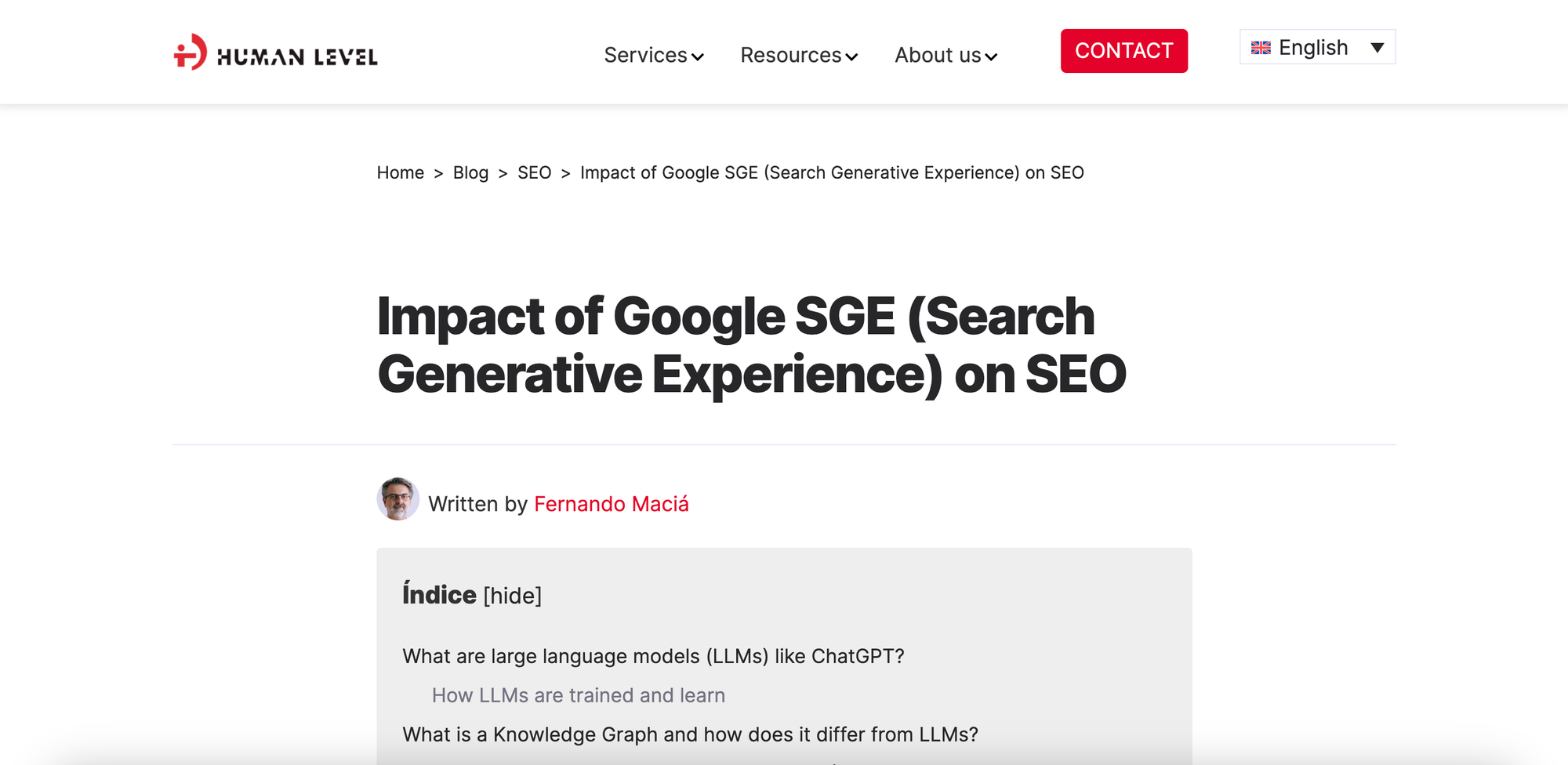
How Google SGE will impact your traffic – and 3 SGE recovery case studies (Gilad David Maayan, SEJ). Key takeaways:
- In a study of 23 websites, the aggregate organic traffic drop as a result of SGE was 18-64%
- It’s possible to optimise pages to appear in SGE snapshot carousels
- You can model SGE impact models and optimise now, with a framework provided by Gilad.
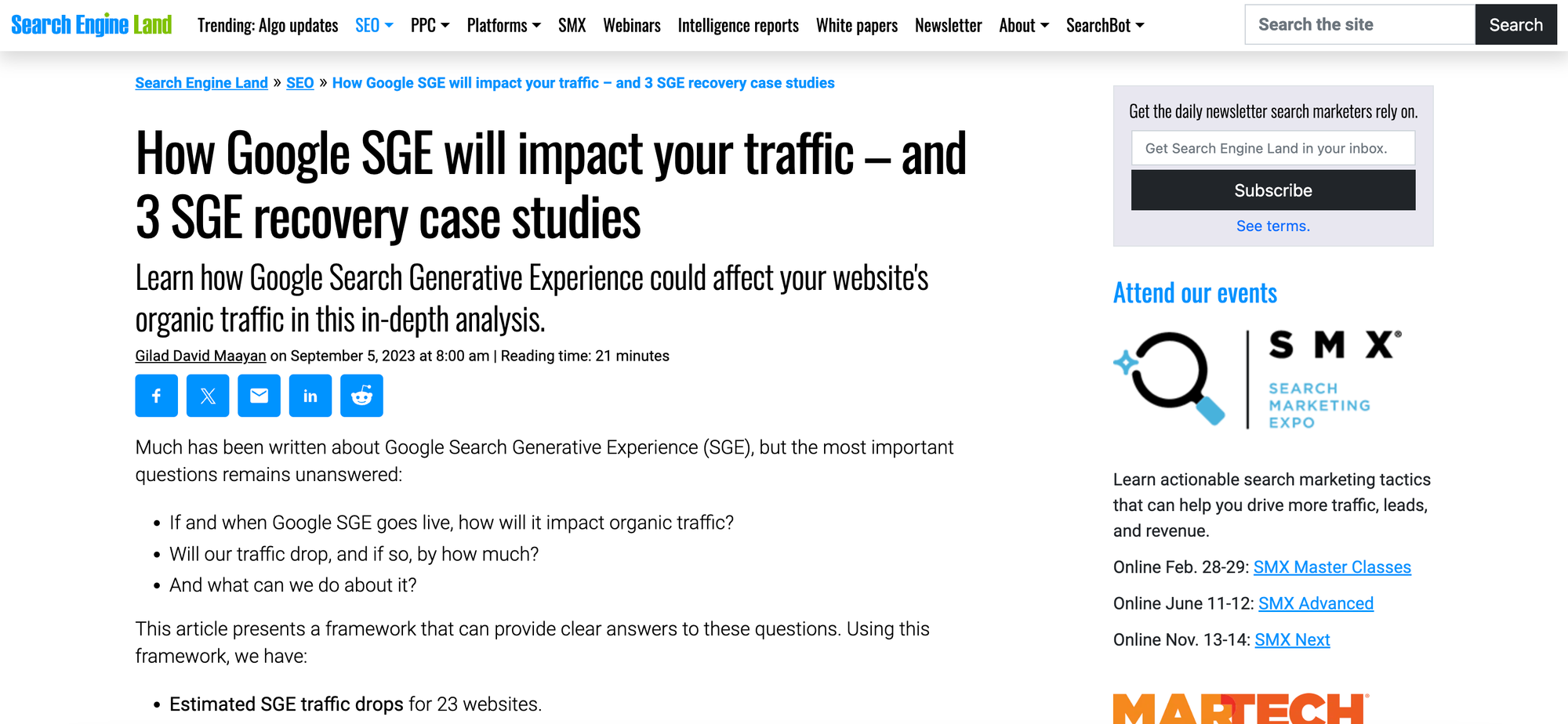
How Search Generative Experience works and why retrieval-augmented generation is our future (Michael King, SEJ). Key takeaways:
- Retrieval-augmented-generation (RAG) is the mechanism by which LLMs (Bard, SGE) gather relevant documents and data points to fine-tune it’s response
- SEOs should consider their ‘RAG pipeline’ and how to optimise for knowledge graphs due to the symbiotic relationship between knowledge graphs and LLMs (as part of RAG)
- Search queries will get longer, as users realise Google can handle natural language. Head terms will shrink and middle to long-tail queries will grow
- Rank tracking is about to become more complex
- Informational keywords made up 51.08% of SGE AI snapshots.
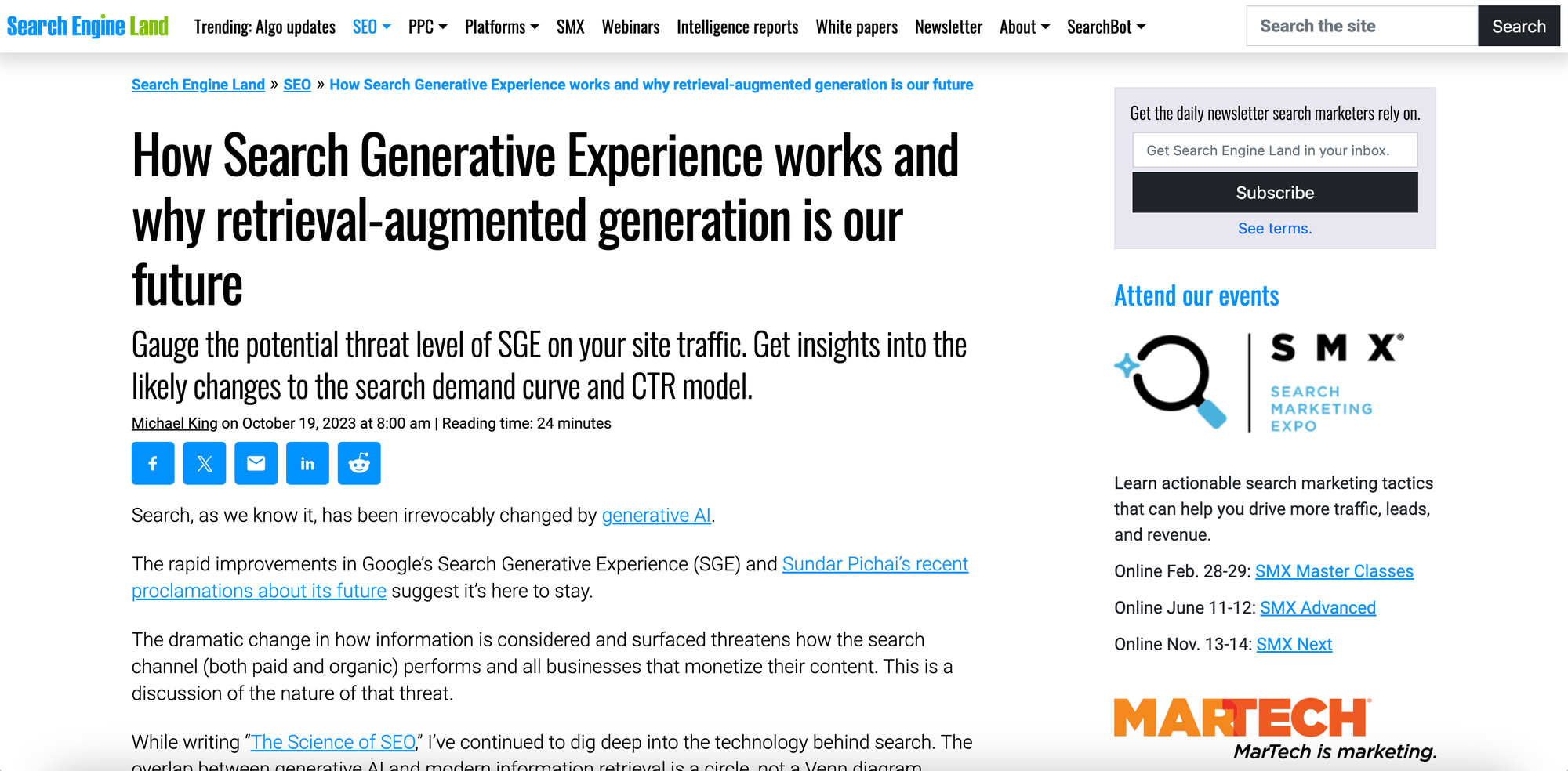
- Marketers should consider the concept of “Generative Engine Optimization (GEO)” based on this research, with nine optimisation tactics referenced (many of these align with EEAT frameworks):
- Authoritative content: Optimise content to be more persuasive and adding authoritative claims
- Keyword Inclusion: Adding more keywords to match the query
- Statistic: Add quantitative statistics, instead of qualitative discussion
- Cite Sources: Add relevant citations
- Quotations: Add quotations from credible sources
- Easy-to-Understand: Simplify the language
- Fluency Optimization: Improve the fluency
- Unique Words: Adding unique words to content
- Technical Terms: Add technical terms content wherever possible.
- The efficacy of these strategies varies across domains (topics), underscoring the need for domain-specific methods
- Adding relevant statistics, quotations and citations can boost content visibility in generative engines by up to 40% in AI snapshots.
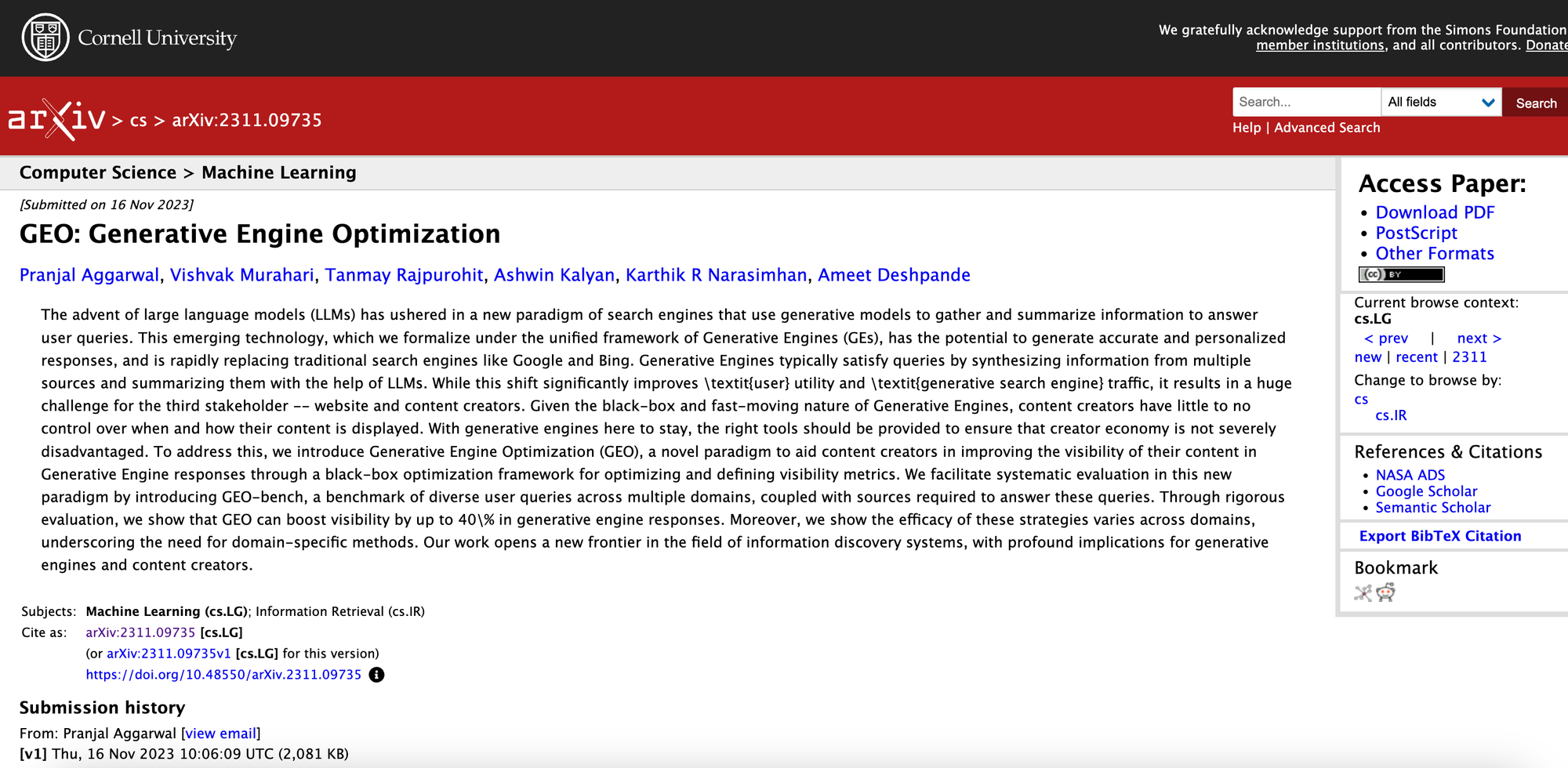
Subscribe to learn more about the latest marketing strategies & tactics, platform updates and MarTech news. I’ll share what matters, and how you can plan accordingly. ✌️
Rory Hope Newsletter
Join the newsletter to receive the latest updates in your inbox.
